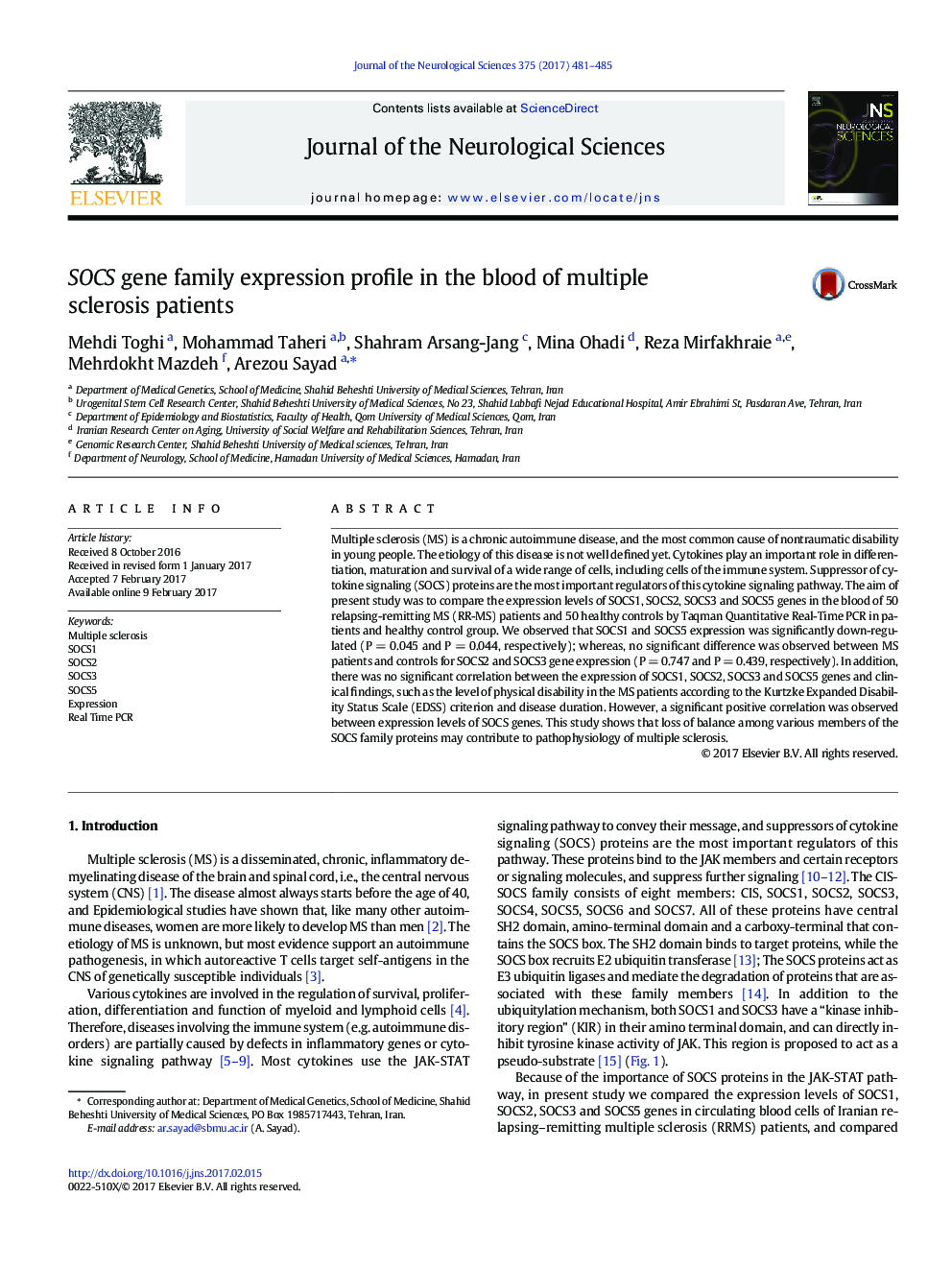| Article ID | Journal | Published Year | Pages | File Type |
|---|---|---|---|---|
| 5503232 | Journal of the Neurological Sciences | 2017 | 5 Pages |
â¢SOCS family proteins can play critical roles in both innate and adaptive immune responses.â¢Our results revealed that, SOCS1 and SOCS5 mRNA downregulated in MS patients versus healthy controls.â¢SOCS1 is involved in regulation of cytokines such as IL-1β and IFN-γ (proinflammatory cytokines).â¢SOCS5 can block STAT1 and STAT3 signaling and prevent differentiation of naïve T cells into T helper1 and T helper17.
Multiple sclerosis (MS) is a chronic autoimmune disease, and the most common cause of nontraumatic disability in young people. The etiology of this disease is not well defined yet. Cytokines play an important role in differentiation, maturation and survival of a wide range of cells, including cells of the immune system. Suppressor of cytokine signaling (SOCS) proteins are the most important regulators of this cytokine signaling pathway. The aim of present study was to compare the expression levels of SOCS1, SOCS2, SOCS3 and SOCS5 genes in the blood of 50 relapsing-remitting MS (RR-MS) patients and 50 healthy controls by Taqman Quantitative Real-Time PCR in patients and healthy control group. We observed that SOCS1 and SOCS5 expression was significantly down-regulated (PÂ =Â 0.045 and PÂ =Â 0.044, respectively); whereas, no significant difference was observed between MS patients and controls for SOCS2 and SOCS3 gene expression (PÂ =Â 0.747 and PÂ =Â 0.439, respectively). In addition, there was no significant correlation between the expression of SOCS1, SOCS2, SOCS3 and SOCS5 genes and clinical findings, such as the level of physical disability in the MS patients according to the Kurtzke Expanded Disability Status Scale (EDSS) criterion and disease duration. However, a significant positive correlation was observed between expression levels of SOCS genes. This study shows that loss of balance among various members of the SOCS family proteins may contribute to pathophysiology of multiple sclerosis.
